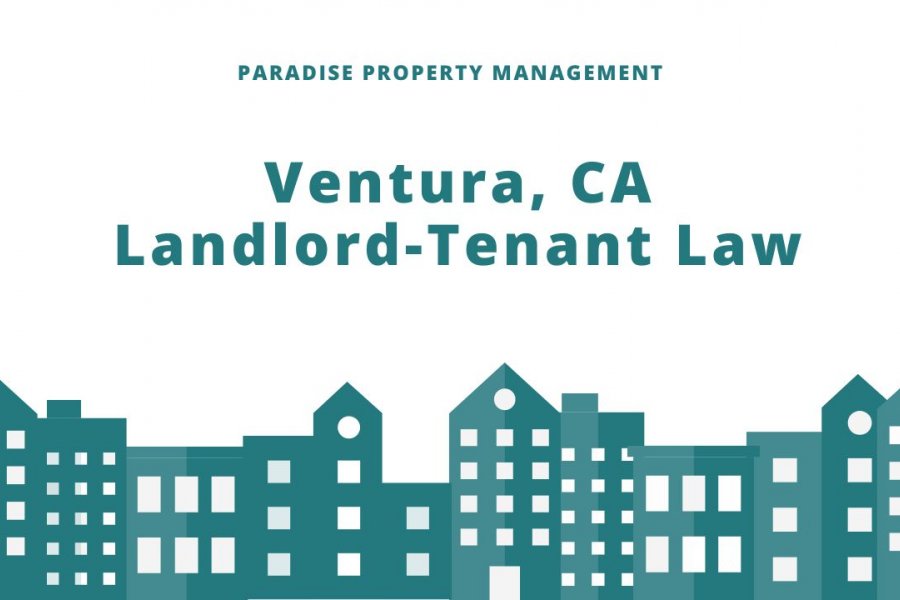
When landlords and tenants sign a lease agreement to rent a unit, there are many regulations they must adhere to in the state of California. These laws are set in place to protect both the landlord and the tenant, as they state the rights and responsibilities of both parties.
Although California Landlord Tenant Laws may be complex, understanding these pieces of legislation before signing a rental agreement with a tenant means that landlords and tenants can prevent misunderstandings and resolve most issues out of court.
Below, we’ve provided an overview of California’s Landlord Tenant Laws in California, from security deposit laws to lease agreements!
California Tenants' Rights and Responsibilities
Below is a list of California renters rights. A renter has the right to the following when they rent a home:
- Live in a sanitary and habitable home
- Privacy and safety
- Have maintenance and repairs made within a reasonable time after requesting them
- Remain in the rental unless the landlord evicts them using the proper eviction process
- Withhold rent if the landlord fails to address maintenance and repair requests within a reasonable time.
The following list includes the tenants’ responsibilities in the state of California. Every California tenant must:
- Provide their landlord with adequate notice before moving out or breaking a lease
- Pay rent on time and in full per the terms of the rental agreement
- Keep the rental unit clean and in good shape
- Use the rental home for its intended purposes only
- Remain respectful of other tenants and neighbors
- Abide by all the terms of the lease agreement
California Landlord Responsibilities and Rights
Every landlord in the state of California has the right to:
- Receive adequate notice if a tenant wishes to end their lease or rental agreement
- Receive clear and timely maintenance requests from California tenants
- Receive rent payments on time and in full
- Enforce the terms of the lease agreement in instances where there is unpaid rent or lease violations

Below are the basic responsibilities of landlords in California. A landlord is responsible for:
- Abiding by the terms of the lease agreement
- Giving tenants at least 24 hours written notice before entering the rental
- Promptly making repairs requested by the tenant
- Following all legal eviction proceedings as set by the State of California
- Providing their tenant with a safe and habitable space
An Overview of California Landlord Tenant Laws
Tenant Privacy and a Landlord’s Right to Enter
Landlords in California must provide their tenant with at least 24 hours notice prior to entering the rental unit. California state law does not specify which method must be used when delivering this notice, but it is most common to do so in writing.
Per California law, landlords do not need permission to enter the home in the case of emergencies when the health and safety of their tenants is threatened.
Maintenance and Repairs
According to California law, landlords are responsible for ensuring that their rental home is habitable and safe. If landlords fail to make repairs, tenants can withhold rent per California law.
These are some of the amenities that must be provided by landlords to make a rental home habitable for a tenants who pay rent in the state of California:
- Windows and doors
- Running water
- HVAC Systems
- Gas lines and fixtures
- Plumbing and sanitation
- Trash cans and garbage removal
- Stable stairs and railings
- Fire exits
- Smoke detectors
- A locking mailbox
- Phone jack wiring
- Hazardous materials disclosures
Housing Discrimination Laws
The Fair Housing Act states that it is prohibited for landlords to discriminate against any tenant who wishes to rent a home based on their race, color, sex, religion, national origin, familial status, or disability.
The California Fair Employment and Housing Act extends this protection, making it illegal to discriminate against tenants who wish to rent a home on the basis of their ancestry, citizenship status, mental disability, source of income, immigration status, marital status, military or veteran status, primary language, sexual orientation and gender identity/expression.

Security Deposits
A security deposit refers to an advance payment made by the tenant. Landlords may use or withhold part or all of a tenant's security deposit for the following reasons after the tenant moves out of the rental unit:
- Cleaning costs
- Repairing damage that exceeds normal wear and tear which is a lease violation
- Fees for restoring the rental to the state it was in prior to the tenants’ lease
- Unpaid rent due at the time of lease termination
The maximum amount landords can charge a tenant for a security deposit in California is the equivalent of 2 month's rent. At the end of the lease, a landlord has to return the security deposit within 21 days or 3 weeks.
Per California Landlord Tenant Law, if the landlord fails to return the security deposit when they are required to, they may be liable to pay up to twice the security deposit value as a penalty.
Required Landlord Disclosures
In California, landlords must provide these disclosures to every prospective tenant who wishes to rent the landlord's dwelling unit:
Lead-Based Paint
Homes built before 1978 often were painted with lead-based paint, which is a health hazard.
If the rental unit was built before 1978, landlords must provide information to all prospective tenants about lead paint that may be present.

Bed Bugs
All California landlords must provide their tenants with written information about bed bugs infestations, including information on how to report an infestation should it happen.
Mold
Any known occurrence of mold in the rental must be disclosed to tenants who rent the home.
Utility Use and Payments
California landlords must inform their tenants about how utility fees are applied and divided up for the rental units, and who is responsible for paying the utility companies.
Asbestos
If the rental was built before 1979 and the owner has knowledge of asbestos in the unit, landlords must disclosed this information to any potential tenant.
Meth and Fentanyl
If the landlord has knowledge of any drug contamination in the rental and remediation has not been completed, this information must be disclosed to prospective tenants.
Sex Offender Registry
Potential tenants have the legal right to access any information regarding the National Sex Offender Registry. To protect renters, this right must be disclosed by the landlord.
Demolition Permit
Planned demolitions can easily disrupt a tenant’s life when they rent your property.
This disclosure is applicable to any building that has plans for demolition that may affect the renter during their tenancy.

Military Ordnance
This disclosure is required for any property for rent that sits within one mile of a known ordnance location that may have an explosive risk.
Death
Landlords must disclose any death that occurred in the rental in the past three years that was not related to HIV or AIDS.
Pest Control
If pesticides have been used on the property, this must be disclosed to potential renters.
Flood Zone
If the rental property is in a known flood zone, the landlord must disclose this information.
Smoking Policy
Any landlord that enforces a smoking policy on their property must disclose this prior to signing the lease.
Small Claims Lawsuits
Rent related disputes can be common. The small claims court in California will hear rent related cases in the amount of up to $10,000. However, there is a limit to these hearings.

In one year, landlords may file up to 2 cases that amount to more than $2,500. In California, the statute of limitations for written contracts is 4 years and for oral contracts, it is 2 years.
Bottom Line
Being a self-managing landlord can be difficult, especially when it comes to keeping up with legal amendments to federal, state, and municipal Landlord-Tenant Laws. Please contact Paradise Property Management for any questions you may have about property law, security deposits, or any other aspects of property management.
Disclaimer: This post should not be used as a substitute for legal advice from a licensed legal professional in California. Laws can frequently change, and this post may not be up to date at the time of your reading.
